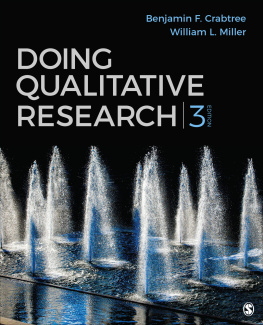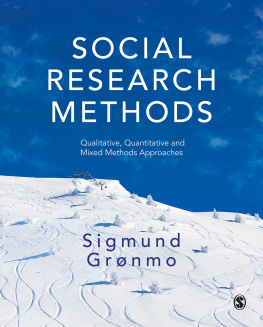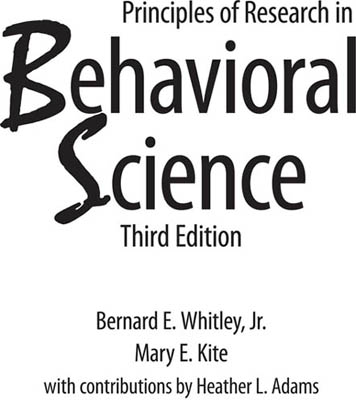Kite Mary E. - Principles of Research in Behavioral Science
Here you can read online Kite Mary E. - Principles of Research in Behavioral Science full text of the book (entire story) in english for free. Download pdf and epub, get meaning, cover and reviews about this ebook. City: New York, year: 2013, publisher: Routledge, genre: Politics. Description of the work, (preface) as well as reviews are available. Best literature library LitArk.com created for fans of good reading and offers a wide selection of genres:
Romance novel
Science fiction
Adventure
Detective
Science
History
Home and family
Prose
Art
Politics
Computer
Non-fiction
Religion
Business
Children
Humor
Choose a favorite category and find really read worthwhile books. Enjoy immersion in the world of imagination, feel the emotions of the characters or learn something new for yourself, make an fascinating discovery.
- Book:Principles of Research in Behavioral Science
- Author:
- Publisher:Routledge
- Genre:
- Year:2013
- City:New York
- Rating:5 / 5
- Favourites:Add to favourites
- Your mark:
Principles of Research in Behavioral Science: summary, description and annotation
We offer to read an annotation, description, summary or preface (depends on what the author of the book "Principles of Research in Behavioral Science" wrote himself). If you haven't found the necessary information about the book — write in the comments, we will try to find it.
Intended for beginning graduate or advanced undergraduate students, this book provides a comprehensive review of research methods used in psychology and related disciplines. It covers topics that are often omitted in other texts including correlational and qualitative research and integrative literature reviews. Basic principles are reviewed for those who need a refresher. The focus is on conceptual issues statistics are kept to a minimum. Featuring examples from all fields of psychology, the book addresses laboratory and field research. Chapters are written to be used independently, so instructors can pick and choose those that fit their course needs. Reorganized to parallel the steps of the research process, tips on writing reports are also provided. Each chapter features an outline, key terms, a summary, and questions and exercises that integrate chapter topics and put theory into practice. A glossary and an annotated list of readings are now included.
Extensively updated throughout, the new edition features a new co-author, Mary Kite, and:
New chapters on qualitative research and content analysis and another on integrative literature reviews including meta-analysis, critical techniques for todays research environment.
A new chapter on exploratory and confirmatory factor analysis that addresses the use of path analysis and structural equation modeling.
A new chapter on how to write a research report using APA style.
Examples from cross-cultural and multi-cultural research, neuroscience, cognitive, and developmental psychology along with ones from social, industrial, and clinical psychology.
More on Internet research and studies.
Greatly expanded Part 3 on research designs with chapters on true experiments, field research, correlational and single-case designs, content analysis, and survey and qualitative research.
A website with PowerPoint slides for each chapter, a test bank with short answer and multiple choice questions, additional teaching resources, and the tables and figures from the book for Instructors and chapter outlines, suggested readings, and links to related web sites for students.
Intended as a text for beginning graduate and/or advanced undergraduate courses in research methods or experimental methods or design taught in psychology, human development, family studies, education, or other social and behavioral sciences, a prerequisite of undergraduate statistics and a beginning research methods course is assumed.
Kite Mary E.: author's other books
Who wrote Principles of Research in Behavioral Science? Find out the surname, the name of the author of the book and a list of all author's works by series.
















